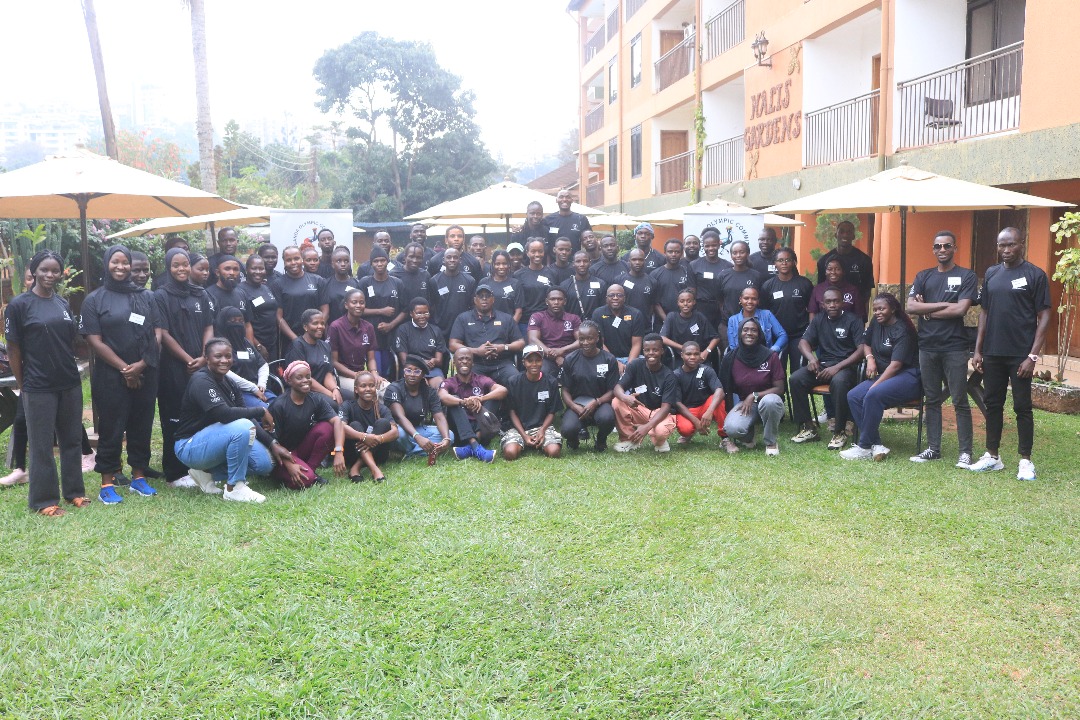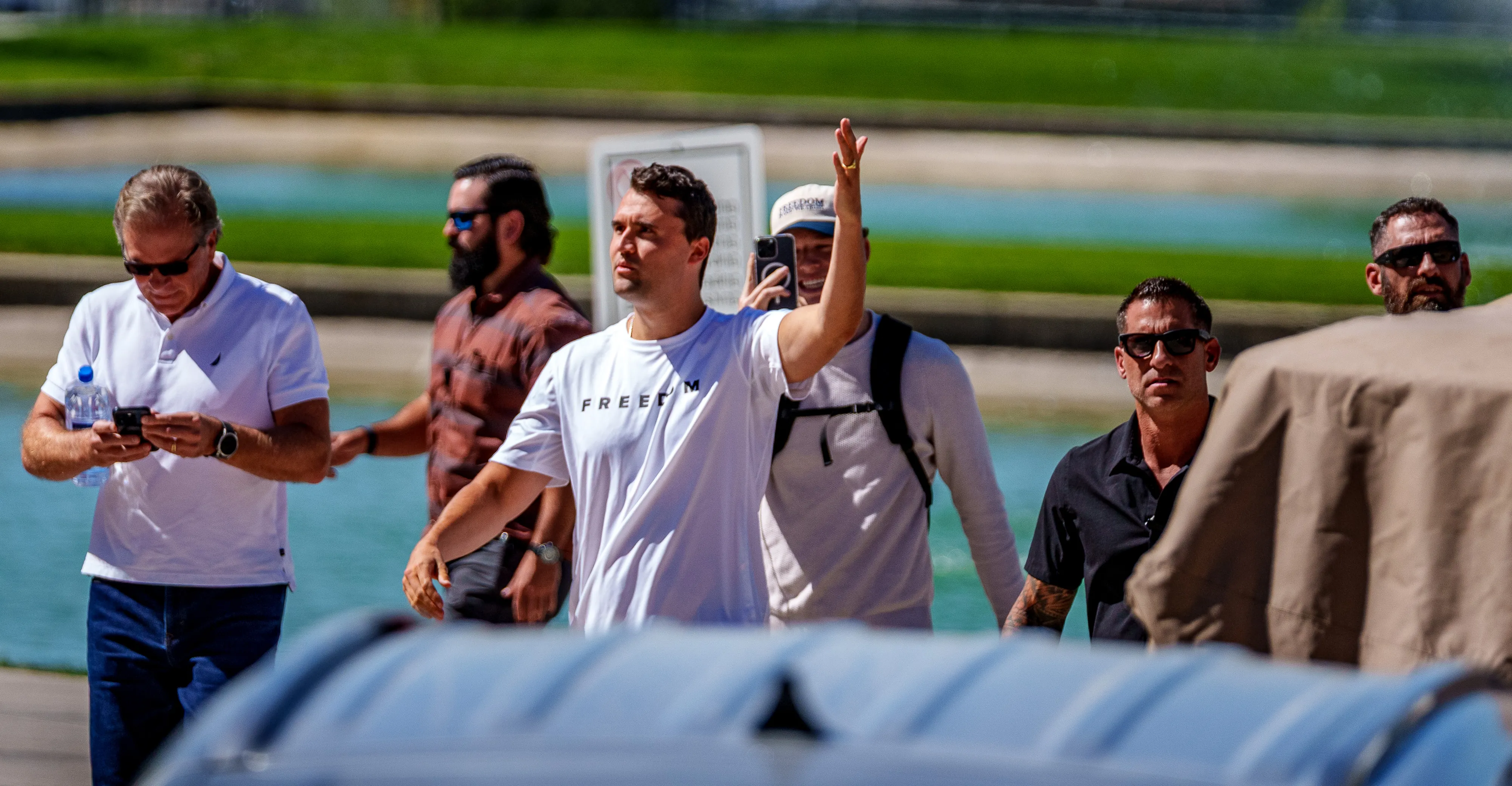By David Isabirye
Copyright kawowo

The sport industry rotates around special pillars to include the athletes, coaches, facilities, sponsors, medics and media, among others.
Whereas all the afore-mentioned operate in unison, the athlete is quite a unique and special component in this circle.
Virtually, sport rotates around the athlete but all the others are equally relevant.
To further amplify the weight and significance of athletes, the Uganda Olympic Committee (UOC) athletes’ commission conducted a two-day workshop at NOB View hotel in Ntinda, Kampala city.
This workshop was hinged on the vibrant theme “Your Voice, Your Power”.
In particular, the UOC Athletes workshop was targeted to address the increasing stress modern-day athletes are facing and demands wholistic assistance beyond sports training.
Via the same pipeline, the workshop also aimed to empower athletes with advocacy skills, individual strength, and media literacy training within a secure environment for honest discussion of mental health, safeguarding, and sport integrity.
Key sensitive topics of discussions ranging from mental health, athlete welfare, contest integrity, nutrition, and media competence were comprehensively covered by a pool of vastly experienced facilitators in the various dockets.
Respected female journalist Usher Komugisha who has traversed this world to cover different international events covered the enviable power of the athlete brand.
There were also keynote addresses by sports administrators, panel forums, and interactive discussions with positive feedback from members of the athletes’ commission and the participants.
The expected outcomes would boost the greater mental health awareness, improved communication, and greater inclusion of athletes in decision-making.
The workshop targeted active professional athletes, coaches, and sport administrators, as a viable forum towards a safe and empowering space for athletes to thrive on and off the track.
Kyomugisha elucidated about the power of an athlete’s brand, both locally and internationally, and how it shapes people’s perception and takes control of the narrative of one’s reputation. She demanded confidence, especially when preparing for interviews following a poor game.
On social media, she addressed the necessity of each of the various platforms, including Facebook, Instagram, Twitter, and LinkedIn, and encouraged the athletes to be innovative in their online visibility.
Key elements like professional photographs, National IDs, and a standardized online identity were also addressed.
Kyomugisha advised athletes to choose content that resonates with their audience and mind the timing of what they post, particularly between 10 AM and 8 PM.
She emphasized crisis communication, where athletes take responsibility for mistakes and apologize where necessary.
Lastly, Komugisha advised athletes to speak confidently in their narrative since no one else understands their journey better than they do.
Aijuka Kevin’s presentation dwelled upon sports competition manipulation to cover intentional acts aimed at impacting competition results, which are classified as sport-motivated manipulation and betting-activated manipulation.
Key case studies included the infamous 2006 Juventus scandal and the 2012 Olympic Badminton scandal involving Chinese, South Korean and Indonesian Players.
The presentation provided insight into the 2009 European football match-fixing scandal, which involved over 200 matches across nine European countries, and the 2013-2015 English football match-fixing scandal.
It emphasized prohibited conduct, including betting on one’s sport, manipulating competition outcomes, and failing to report or cooperate with investigations.
She acknowledged the bold and deliberate effort of international organizations as Federation of International Football Association (FIFA), International Cricket Council (ICC), the International Tennis Integrity Agency and others.
Her presentation emphasized the importance of National Regulatory Frameworks, like The National Sports Act, which prohibit manipulation and specifies sanctions, including fines and imprisonment.
Prevention, detection, and surveillance of betting activity, and confidential reporting mechanisms that encourage recognition, resistance, and reporting of manipulation are critical Integrity Measures.
Patricia Nanteza Mbowa, a mental Health in Sport Specialist handled the sensitive topic of mental health in sport.
Mental health in sport plays a crucial role in developing a winning mindset that involves being in control of your thoughts and emotions, leading to positive well-being. The right mindset is crucial as it influences how athletes relate with teammates and physical energy levels. The characteristics of a winning mindset are perseverance, open communication, and commitment to goals. Sports individuals need to see competition as an opportunity to win or learn, and simultaneously gain valuable skills such as dealing with fears, maintaining composure, and using positive imagery for self-esteem building. Teamwork is essential to achieve collective success, and the employment of a sports psychologist can be of tremendous assistance in the areas of mental fitness training, team dynamics, motivation, and performance enhancement.
Patricia Nanteza Mbowa, mental health in sport specialist
On the topic of nutrition by Irene Blick, a sports nutritionist, she described nutrition as the gateway to a balanced diet required for a healthy body.
She emphasized the role of various nutrients like proteins—plant and animal—the vitamins, minerals, and fiber to play essential roles in achieving the optimal athletic performance.
The major benefits of good nutrition are increased stamina, increased memory, a healthy heart, and bones strength. Competitive athletes require more nutrients than the average person, the more intense the training, the greater the requirements for nutrients.
Irene Blick, sports nutritionist
She explained the plate system of meal planning, the role of carbohydrates as primary fuel, and the role of fats and proteins consumed 3-4 hours before competition.
Blick also mentioned the benefits of proper hydration and sports drinks for replenishing electrolytes and energy during exercise.
“Essential nutrients like calcium, iron, and magnesium were touched upon, along with the required balanced diet based on different sports so that athletes can realize their full potential.” she added.
Uganda Olympic Committee (UOC) vice president Moses Mwase officially opened this two day workshop whilst the president Dr. Donald Rukare officiated at the closure.
Dr. Rukare commended the athletes’ commission for the inclusiveness component since they also considered para-athletes.
“The workshop was too beneficial. Topics like safe-guarding with both international and national aspects are very important ahead of the Islamic Games due to by hosted by Saudi Arabia in November 2025” Dr. Rukare preached.
By and large, the athletes’ workshop will leave lasting impressions given the sensitivity of topics curtained that are key in the daily operations of athletes in the box.



